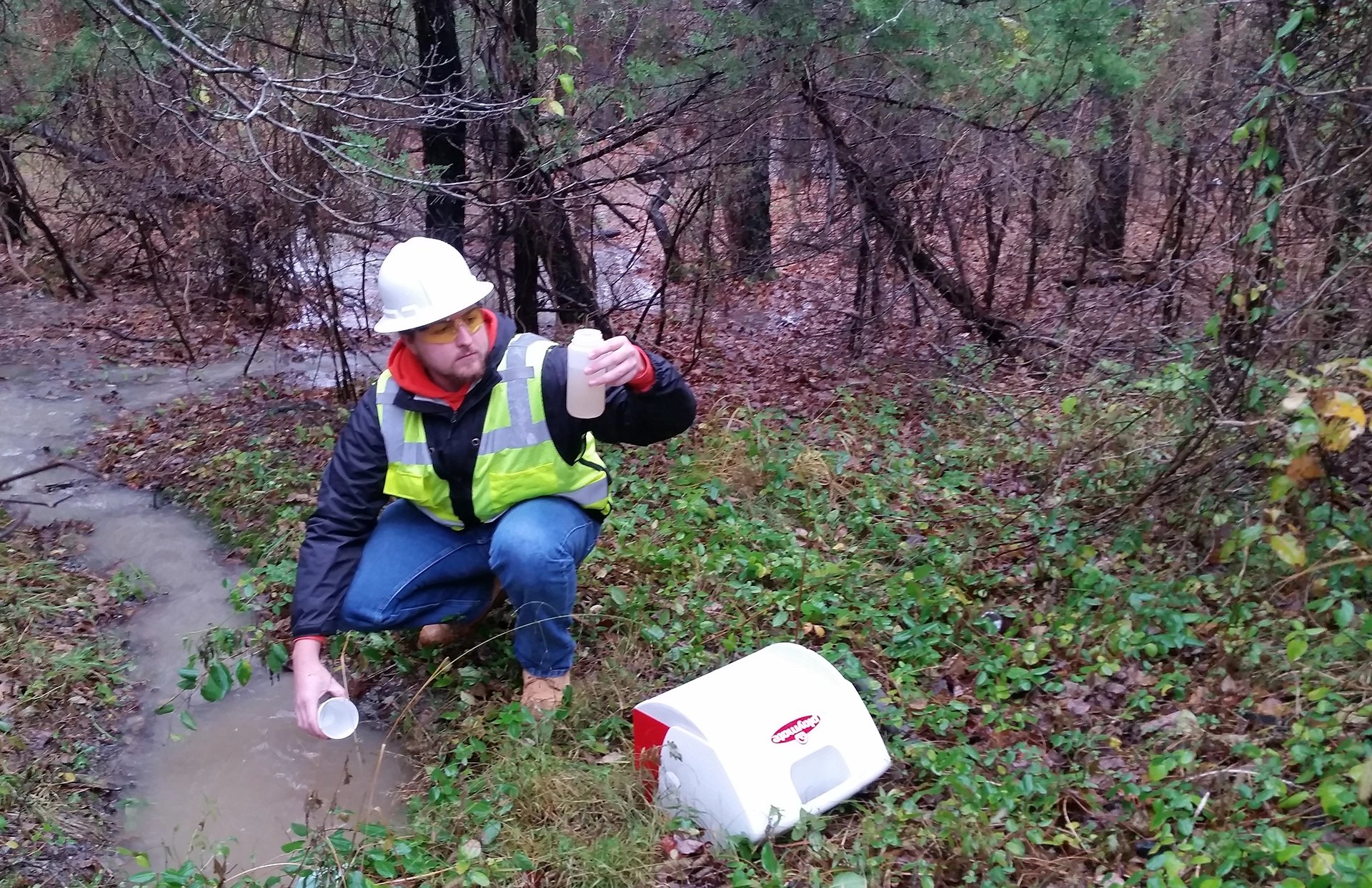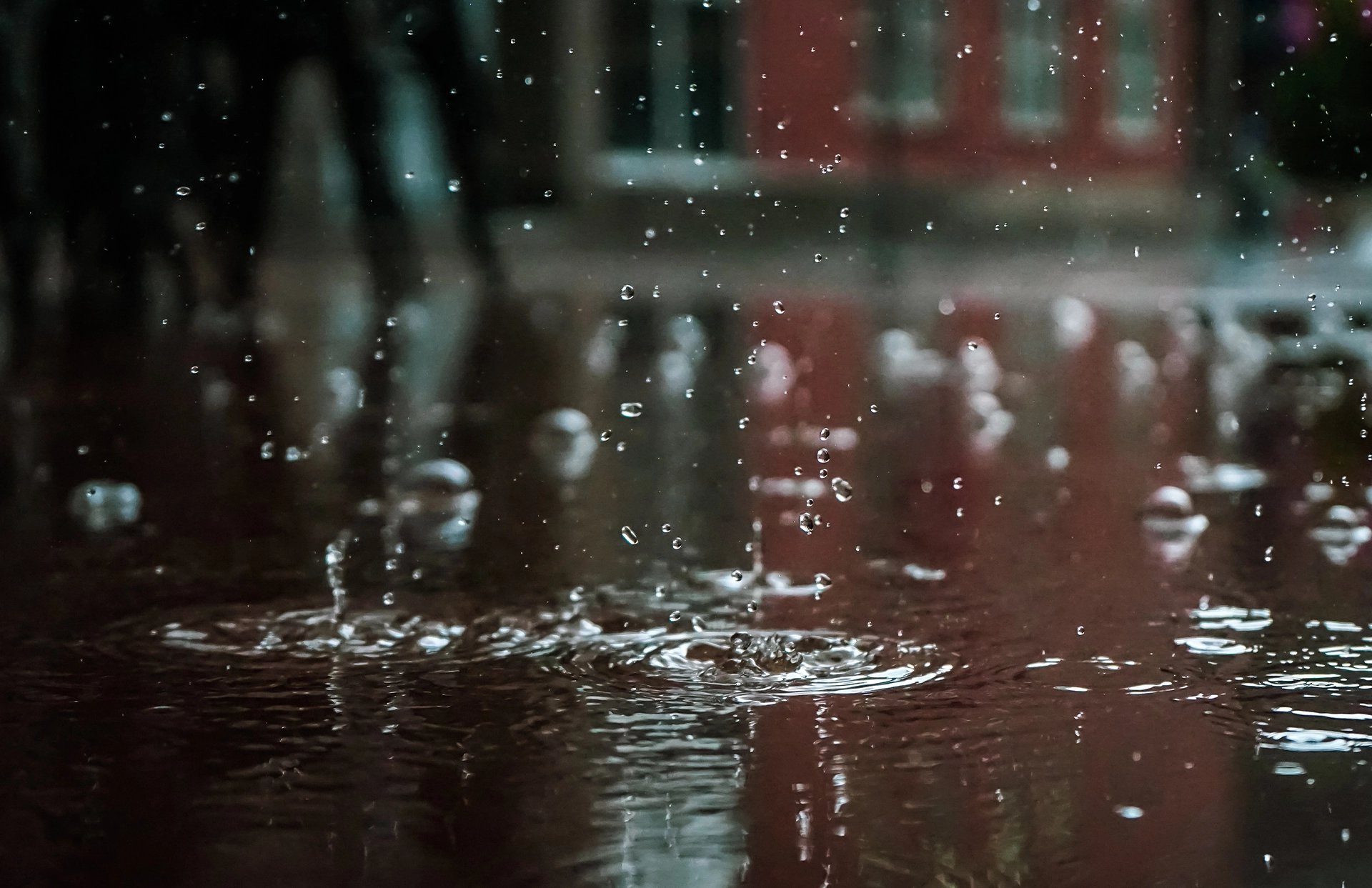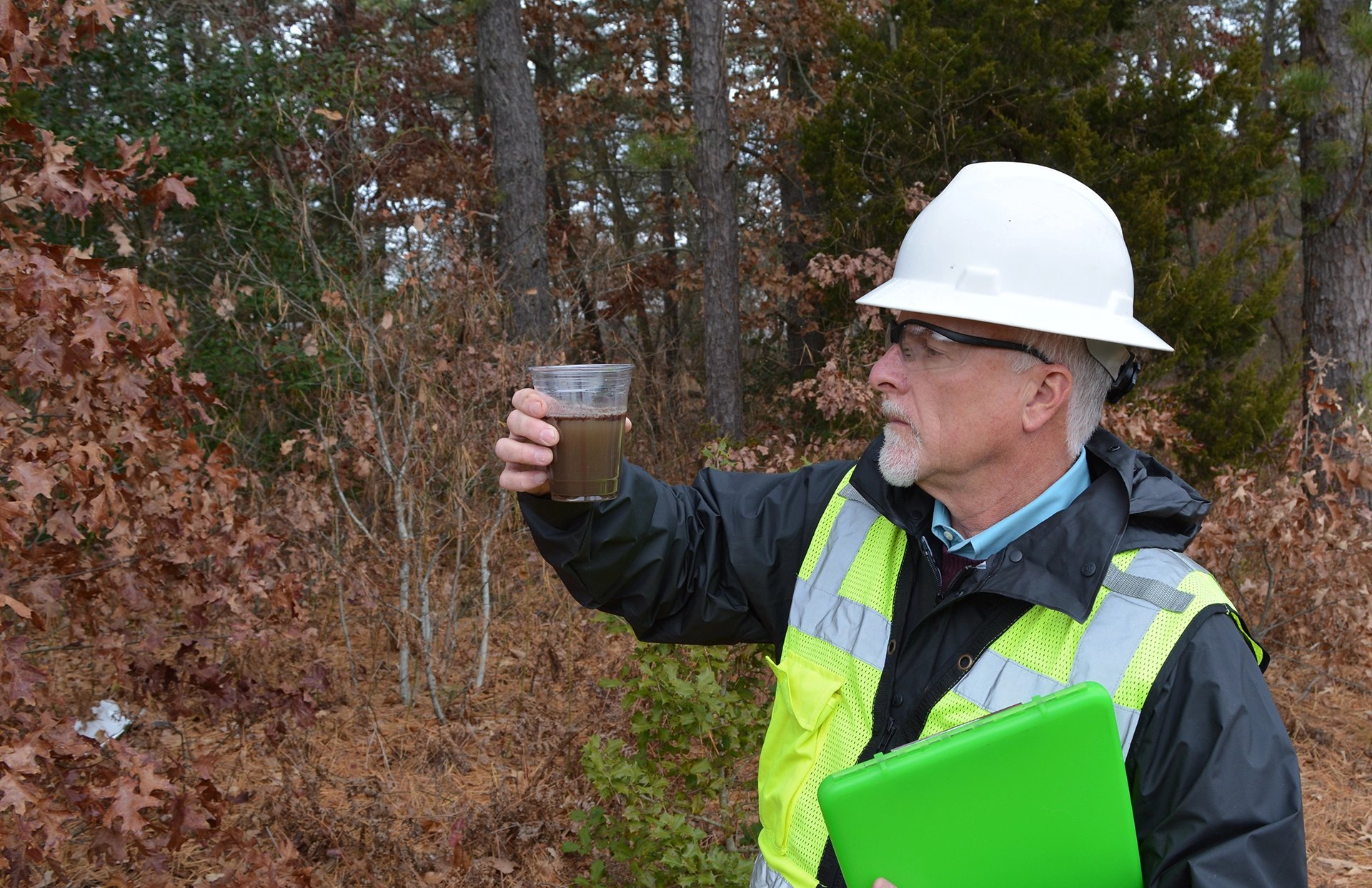ind out if your business needs an NPDES stormwater permit in this quick read!
We get asked about stormwater permits all the time. We commonly hear things like: what even is a stormwater permit? Does the government regulate rain? What do I need to do to stay in compliance with a stormwater permit? All valid questions!
But obviously, those questions only come up after someone finds out that they need a stormwater permit! That's why the most common question that we get asked about stormwater permits is: does my facility need a stormwater permit?
Many businesses do not realize that they require an NPDES stormwater permit at their facility. We get it - regulations can be difficult to read on your own, asking for help from the government can be challenging, and unless an inspector or regulator shows up, you may have no idea this regulation even exists!
Let's take a moment and look at an overview of NPDES stormwater permits to see if that can help you figure out if you need an NPDES stormwater permit at your facility.
What is a stormwater permit?
Okay, what is a stormwater permit anyway?
Stormwater permits are a type of NPDES permit (National Pollutant Discharge Elimination System), which are water quality permits issued by the Federal government (through the US Environmental Protection Agency, or USEPA) and via state government's environmental departments to preserve and protect waters of the United States (mainly surface waters such as lakes, stream, rivers, and wetlands, but also aquifers too).
These types of permits regulate “discharges” of polluted waters to waters of the United States, including stormwater runoff discharges from certain types of facilities, which have come into contact with “source materials” and have, as a result, become polluted to some extent. So no, this isn’t a permit for rainfall, but is instead a permit for the discharge of polluted stormwater, regardless of the extent to which that stormwater runoff is polluted, or by what.
For the full story, be sure to check out our other articles:

How do I know if I need a stormwater permit?
While you might think this should be a simple answer, it can actually be kind of tricky.
For now, let’s just say that almost all industrial facilities (with certain exclusions), construction activities, and municipal discharges (such as from your city or town’s storm sewer system) to surface waters of the United States (and sometimes even to groundwater), either directly (i.e., right into) or indirectly (e.g., through a storm sewer system), require an NPDES stormwater discharge permit. This includes virtually all industrial facilities, regardless of size.
To get technical, there is a listing of applicable facilities within both Federal and state regulations. It can vary, but the regulations in terms of applicability are pretty consistent. Without getting too specific here, in many instances, commercial facilities such as shopping malls or office buildings do not require NPDES stormwater discharge permits, but that depends on the specific state regulations in place within the specific state in question. So, it depends!

What if I don’t discharge to any surface water of the United States - do I still need an NPDES stormwater permit?
Remember what we said before - regulated stormwater discharges, from regulated facilities, can either be direct or indirect to surface waters of the United States.
So, if you are located in an urbanized area, for example, and not near to any stream, lake, river, or wetlands, and stormwater runs off your site, you might think you wouldn’t need an NPDES stormwater permit, right? Probably wrong, since that runoff goes somewhere, and 99 times out of a 100, that runoff winds up in some surface water body somewhere (that’s why we have storm sewer systems throughout the United States, to convey stormwater runoff to surface water bodies - like in the picture above!).
So while it’s a no-brainer if you’re located adjacent to, or near to, a surface water body, and it might be trickier if you aren’t, in our experience, in nearly all cases, regulated facilities do indeed have a discharge to waters of the United States, and therefore require an NPDES stormwater permit. If you feel otherwise, you better be able to make a darn good argument, and back it up with engineering calculations, otherwise, you’re going to need a permit.
What if all my facility’s stormwater stays on my site, draining to groundwater, and is not discharged directly or indirectly to any surface water body?
The Federal NPDES regulations regulate discharges of polluted stormwater to surface water bodies, and most states’ versions of the NPDES regulations also only regulate discharges to surface waters, such as streams, lakes, rivers, wetlands, etc. So, if you are in one of these states (or the handful of states or US territories subject to the Federal NPDES regulations), then maybe, just maybe, you might not need coverage under an NPDES stormwater discharge permit. Consider yourself lucky, but again, you better be able to definitively prove this situation to the satisfaction of government inspectors and environmental groups.
But you also need to know that there are a handful of states, that under their own version of the NPDES discharge regulations, also regulate “discharges to groundwater”. This means that even if all that stormwater runoff is contained on your industrial facility’s property (or on a construction site for example), if it somehow is collected or otherwise soaks into the ground, then that action is considered a regulated discharge, and in that instance, you need an NPDES stormwater permit!
So, knowing exactly what your state regulates is vitally important in determining whether or not you need an NPDES stormwater permit, whether surface water discharges only, or both surface water and groundwater discharges. Get it wrong, presume you don’t need a permit when you actually do, and you’re headed for trouble!
This situation can be kind of complicated, and more than we want to go into right here. If you want more help with this, reach out to us and we’d be happy to discuss this situation further.

What if everything we do at our facility is located indoors and out of the rain, do I still need a stormwater permit?
There are some types of regulated facilities (usually industrial facilities) that have most, if not all, of their industrial equipment and activity indoors, and therefore out of the rain. In that case, the stormwater that then runs off has not been able to come into contact with source materials which could contaminate the runoff, and therefore may not require an NPDES stormwater permit. But this all depends on the state in question, and in most cases, this isn’t going to get a facility out of the need for an NPDES stormwater permit, since it’s the rare facility that keeps EVERYTHING indoors or under permanent cover, and thus has “no exposure”. Sure, it happens, but not as often as people seem to think.
Many states have a “no exposure” exclusion for these types of facilities; if everything is truly indoors or undercover, then you can file some paperwork to confirm that you don’t need an NPDES stormwater permit, and you may be excused from needing for a permit. But as before, you better be right, you better be able to prove this, and you better expect to get inspected by someone who probably isn’t going to agree with you at first (and is going to be a hard sell). With respect to these exclusions, each state is different, so it’s imperative to make sure you know what the story is in your state if you think this might apply to you.

Do I still need a stormwater permit if I don't have any pollutants on my site?
The purpose of these NPDES stormwater permits is to limit (or even eliminate) the amount of pollution carried to waters of the United States via stormwater runoff, which has been identified as being the leading cause of water pollution in the US.
And, truth is, nearly all sites contribute some degree of water pollution via stormwater runoff, whether a little or a lot. That pollution doesn’t have to be hazardous or toxic in nature (although discharges of these materials definitely are a concern), but any source of water pollution falls under these regulations, including things like floatable trash, plastics, sand, and dirt from natural sources, etc.
And, by now, you might be thinking "I don't have any pollutants outside at my site", and you may be right. However, we'd caution you from being too sure about this, as many seemingly "natural" materials can be characterized as source materials. A simple pile of dirt or sand alone can be enough to trigger the need for a stormwater permit. If you store any type of chemicals, mixtures, cleaning solutions, oils, or waste outside - even if they are properly stored in containers or drums with lids - you almost certainly need an NPDES stormwater permit.
For some more information on NPDES stormwater permit discharges, check out these other articles:

What's required by a stormwater permit?
Sorry to be the bearer of bad news, but getting an NPDES stormwater permit isn’t as simple as filling out a form, paying some type of fee, and getting some paperwork to hang up on the wall. There is a whole lot more, and the whole point is to reduce or eliminate stormwater pollution from your facility.
So, when you do get a stormwater permit, there’s going to be a bunch of requirements that you must do, and which you really must be in compliance with, such as preparing stormwater management plans (typically called an SWPPP, or Stormwater Pollution Prevention Plan), engaging in a program of pollution-reducing activities collectively called Best Management Practices (or “BMPs”), sampling and testing your stormwater runoff when it rains to measure the amount of specific pollutants leaving your site, reporting your sample results to the government who will compare them with specific benchmarks or limits considered to be indicative of clean runoff (and which you will have to meet), inspections, paperwork, and a whole lot more!
Simple and easy? No. But also, not impossible or rocket science!
Here are some additional articles covering some of the long(er) term considerations with regards to staying in compliance with your stormwater permit:
If I need a stormwater permit, which one do I need?
As we have already mentioned, NPDES stormwater permits are most often issued at the state level by state environmental agencies So, the permit you need will depend on where your site is located. Some states have many industry-specific stormwater permits, while others may have just one all-encompassing permit that covers everyone who needs one. You will have to get one of the NPDES stormwater permits available from your state (or the USEPA if you are in one of those handfuls of non-delegated states or US territories). Every permit has its own regulations, monitoring requirements, and stormwater management procedures you'll need to follow.
If you're not sure what you need or which regulatory agency to contact, it's best to reach out to a stormwater permit expert.
Where would I get a stormwater permit from?
NPDES permits are required for all discharges of pollution to waters of the United States under Federal and state law. While there are a small handful of states and territories within the United States at which NPDES permits - including stormwater permits - are issued by the Federal USEPA, in most cases individual states themselves are delegated to run their own NPDES permitting program and issue state-specific NPDES stormwater permits.
So for most people reading this right now, you probably would get a stormwater permit from the environmental department of the state your facility is located in.
What happens if I need a stormwater permit and don't get one?
It goes without saying that if you need a stormwater permit and are discovered not to have one, you'd be in some hot water. NPDES stormwater permits are called "NPDES" for a reason - they are National Pollutant Discharge Elimination Systems. Even if your state is the issuer of permits in your area, you'll still be breaking a Federal regulation if you don't have one, and neither the Federal USEPA or your state environmental agency are very happy when they find someone who’s needed an NPDES stormwater permit for years or may have contributed to stormwater pollution without a permit. When that happens, someone is usually in very serious trouble!
If you're found in violation for needing an NPDES stormwater permit and don’t have one, you'll be subject to various penalties, including financial penalties, regulatory enforcement like increased inspections, possible temporary (or in more severe cases - permanent) closure of business, and in extreme cases, even jail time. Not to mention you could end up having to foot the bill for cleaning up any pollution that resulted from your non-permitted activities. Not a good look.

Let's review stormwater permit considerations.
Federal NPDES regulations for stormwater permits, which are often the same as those of most states (but not always, so you'll need to check to see if your state goes beyond the scope of the Federal regulations - if you need help with that, contact us and we can help), usually specify the types of facilities which require stormwater permits. But if your organization falls under these types of industrial or manufacturing facilities, there's construction activity at a construction site, or you represent a city, town, or municipality, you probably need an NPDES stormwater permit.
Secondly, do you have exposed "source materials" at your facility to rainfall that are capable of imparting pollutants to stormwater runoff? If so, you almost certainly need an NPDES stormwater permit. If you have nothing - and we mean virtually nothing - exposed to stormwater, then you may qualify for your state's "No Exposure" certification that you don't need a stormwater permit. But if you have anything outdoors and it gets rained on, figure you need an NPDES stormwater permit.
Lastly, does the stormwater that falls onto your regulated facility and comes into contact with source materials (thereby picking up pollutants), then discharged to a water body - directly or indirectly (which could be a surface water body, or in some states, groundwater as well)? If the answer is yes, then you need an NPDES stormwater permit.
Now not to oversimplify it, but if you're a regulated facility, you have stuff outdoors (even things like garbage bins), and your stormwater runs off your site - then YES, you need an NPDES stormwater permit in all probability.

Stormwater permits really aren't so bad!
NPDES stormwater permits are in place to protect water quality, something we should all be able to get behind. After all, who wants to swim in, fish from, or drink polluted water? I know I don't!
Skipping out on a stormwater permit because it seems like too much work can land you in deep trouble with Federal and State regulatory agencies, so it's important that you don't take the permit requirement for stormwater management lightly. And in all actuality, they really aren't that difficult to comply with. Skipping out on a stormwater permit can result in a lot more headaches from regulatory agencies than you would've had by just obtaining and following one in the first place.
Unfortunately, NPDES stormwater permits aren't always clear or easy to figure out. If you're not sure if you need one or what type is right for your site, it's best to play it safe and talk to a stormwater permit expert.
Need additional stormwater permit help?
We've helped more businesses with stormwater permits than we can count over the past 30+ years here at RMA. We've seen and done it all when it comes to stormwater discharge permits, from small organizations that needed a simple general permit, to giant multi-national organizations with complex operations that need complex individual NPDES permits for dozens of sites across the United States - and everyone in between.
If you're still confused about whether or not you even need an NPDES stormwater permit, which permit to get, how to apply for it and obtain coverage, what you need to do to stay in compliance with your stormwater permit, or anything else related to your company's stormwater or environmental programs - give us a shout. We'd be more than happy to take the weight off of your shoulders!
Even if we're not a good fit for your business, we’ll do our best to steer you in the right direction. Feel free to contact us at info@rmagreen.com, click here to contact us, or give us a call anytime at 888-RMA-0230 to learn how we can help your operation deal with stormwater permits and other environmental regulations.







